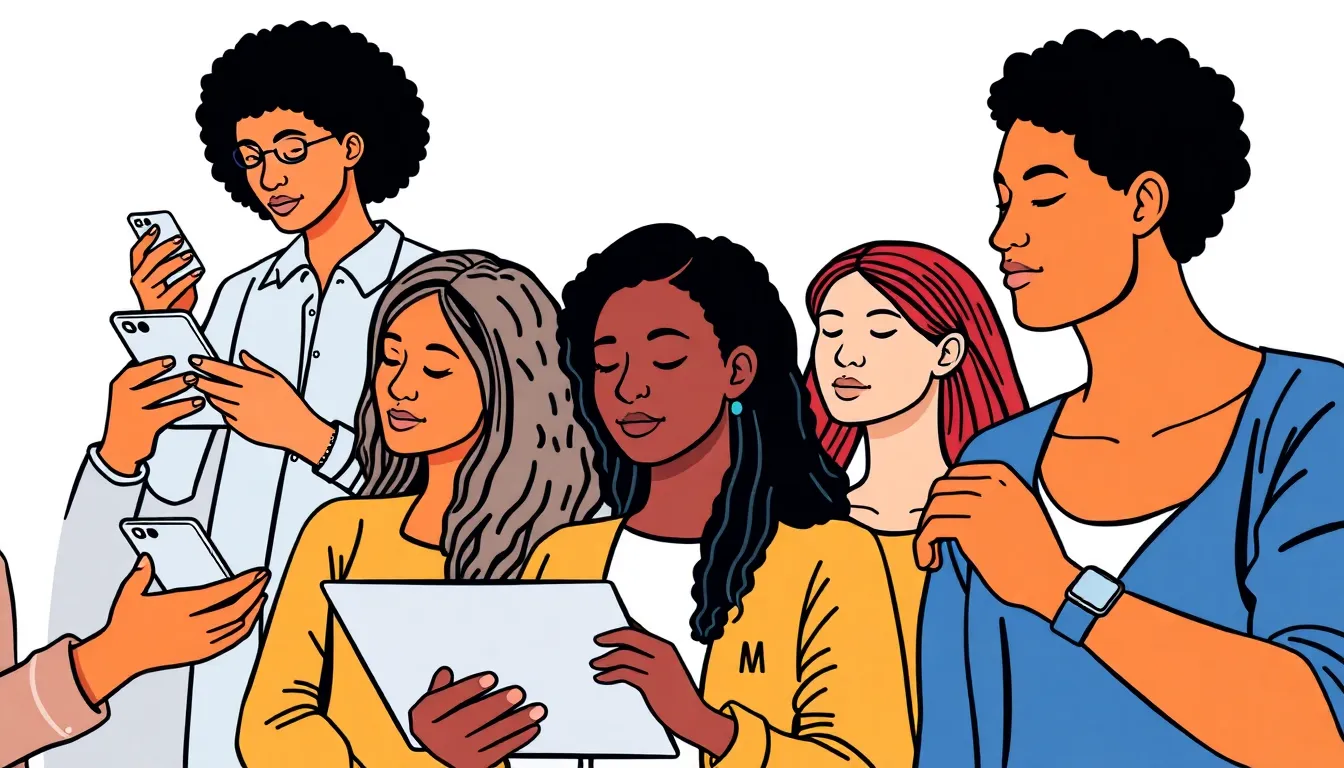In a world where juggling work, life, and Netflix can feel like an extreme sport, digital mental health tools are stepping in as the ultimate coach. These innovative apps and platforms offer a lifeline, helping people navigate their mental well-being with just a few taps on their smartphones. Who knew that self-care could be as easy as ordering takeout?
From mood trackers to guided meditations, these tools are like Swiss Army knives for the mind. They’re designed to fit seamlessly into busy lifestyles, proving that mental health doesn’t have to be complicated or boring. Whether someone’s looking to unwind after a long day or seeking strategies to tackle stress, the digital realm is packed with options that make mental wellness both accessible and, dare we say, fun. Embracing these tools could be the game-changer everyone needs in their quest for balance and happiness.
Table of Contents
ToggleOverview of Digital Mental Health Tools
Digital mental health tools represent a growing category of resources that enhance mental well-being. These solutions include mobile applications, websites, and online platforms, designed to support users in managing their mental health. Common examples feature mood trackers, guided meditations, and cognitive behavioral therapy programs.
Applications such as mood trackers allow users to document their feelings and identify patterns over time. Using simple interfaces, these tools can provide insights into emotional triggers. Guided meditation apps offer audio and visual support for mindfulness practice, making relaxation accessible at any time.
Additionally, teletherapy platforms connect individuals with licensed therapists through video calls. This convenience supports those who may struggle with traditional in-person sessions. Many of these platforms enable users to choose schedules that fit their availability, removing barriers to receiving care.
Data indicates that digital mental health tools have shown positive outcomes in user satisfaction. A study from the American Psychological Association revealed that individuals who utilized these tools experienced reduced symptoms of anxiety and depression. Such evidence supports the value of integrating these tools into daily routines.
Affordability significantly impacts accessibility, making many digital resources available free or at low cost. These cost-effective options allow a wider range of individuals to participate in mental health care. With user-friendly designs, even those unfamiliar with technology can easily navigate these resources.
Digital mental health tools offer valuable resources for enhancing emotional health and resilience. They provide diverse strategies to support users on their mental health journey. Embracing these innovations makes self-care simpler and more effective for everyone engaged in maintaining mental well-being.
Types of Digital Mental Health Tools

Digital mental health tools come in various forms, catering to different needs and preferences. Understanding these tools helps users choose the best solutions for their mental well-being.
Mobile Applications
Mobile applications serve as popular resources for mental health management. They include mood trackers that allow users to log emotions and recognize patterns, enhancing self-awareness. Some apps offer guided meditations, promoting relaxation and mindfulness in daily routines. Others focus on cognitive behavioral techniques, providing exercises that facilitate positive thinking. Users appreciate the convenience of utilizing these apps anytime and anywhere, making mental health care more accessible.
Online Therapy Platforms
Online therapy platforms connect individuals with licensed therapists through video calls or chat services. These platforms remove geographic barriers, offering access to mental health care from the comfort of home. Scheduling flexibility exists, enabling users to book sessions that fit their busy lifestyles. Many platforms support various therapeutic approaches tailored to individual needs, enhancing the effectiveness of treatment. Data from the American Psychological Association shows that online therapy often yields similar results to traditional face-to-face sessions, affirming its efficacy in managing mental health.
Wearable Technology
Wearable technology increasingly plays a role in mental health management. Devices like smartwatches can track physical activity and sleep patterns, influencing mental well-being. Some wearables provide real-time feedback on stress levels and offer guided breathing exercises for immediate relief. Users find this proactive approach beneficial in maintaining a balanced emotional state. Furthermore, data-driven insights empower individuals to make informed decisions about their mental health, promoting a more holistic understanding of wellness.
Benefits of Digital Mental Health Tools
Digital mental health tools offer significant advantages for individuals looking to manage their well-being. Accessibility and convenience stand out as primary benefits.
Accessibility and Convenience
Digital mental health tools provide immediate access to resources anytime, anywhere. Apps like mood trackers and guided meditations ensure that self-care isn’t limited by location or time constraints. Many platforms are designed to fit easily into busy schedules. With user-friendly interfaces, these applications require minimal digital literacy, making them suitable for a wide audience. Studies indicate that people report feeling less deterred from seeking help when resources are readily available. Low-cost or free options increase affordability, helping to remove barriers that typically prevent individuals from pursuing mental health support.
Enhanced User Engagement
Engagement with digital mental health tools often leads to improved outcomes. Interactive features motivate users to track their progress regularly, creating a sense of ownership over their mental wellness journey. Personalization options tailored to individual preferences enhance connection. Many applications incorporate gamification elements that transform traditional mental health practices into enjoyable experiences. Regular reminders engage users and keep them accountable, fostering consistent practice. Research from the American Psychological Association indicates that continuous interaction with these tools correlates with reduced symptoms of anxiety and depression. These platforms not only support users but also build a community around shared experiences in mental health.
Challenges and Considerations
Digital mental health tools present several challenges that users and developers must navigate. Key issues include privacy, security, effectiveness, and limitations.
Privacy and Security Concerns
Maintaining privacy and security represents a major concern for digital mental health tools. Users often share sensitive information, making data protection crucial. Developers must implement robust encryption methods to safeguard personal data. Inadequate data protection practices can lead to breaches, undermining user trust. Additionally, clear privacy policies are essential for transparency, allowing users to understand how their information is handled. It’s vital for consumers to evaluate the security measures of any application they consider.
Effectiveness and Limitations
Effectiveness varies among digital mental health tools, impacting overall user experience. Many studies, including those by the American Psychological Association, suggest positive outcomes, yet results may not apply universally. Some users benefit significantly while others encounter limitations. Tools perform well for managing mild symptoms but may fall short for individuals with severe mental health conditions. Additionally, the absence of personalized support can reduce effectiveness. These factors highlight the importance of combining digital tools with traditional therapy methods for optimal results.
Future Trends in Digital Mental Health Tools
Emerging technologies promise to transform the landscape of digital mental health tools. Artificial intelligence facilitates personalized experiences through tailored recommendations and interventions. Users can expect advancements in virtual reality therapy, offering immersive experiences that enhance treatments for conditions like anxiety and PTSD.
Teletherapy platforms will broaden their reach, incorporating additional features like group therapy and workshops, fostering community support. Integration of wearable technology continues to grow, with devices like smartwatches providing real-time tracking of mental health metrics, such as sleep patterns and physical activity.
Investments in gamification of mental health apps engage users more deeply. Incorporating game-like elements motivates individuals to participate consistently in their mental wellness journey. Furthermore, access to resources in multiple languages will improve inclusivity, ensuring that diverse populations benefit from these tools.
Data security will remain a hot topic as users seek assurance about privacy. Developers will prioritize robust encryption methods and transparent privacy policies to build trust with their audience. Enhanced collaboration with healthcare providers will emerge, resulting in tools that align more closely with traditional treatment plans.
Integration of community features, such as forums and support groups within apps, will enable users to connect with others facing similar challenges. Research indicates that social support plays a crucial role in mental health recovery. Consequently, these trends illustrate a shift toward more comprehensive, user-centered digital mental health solutions.
Digital mental health tools are transforming the way individuals approach their mental well-being. With their accessibility and convenience, these resources empower users to take charge of their mental health journeys. As technology continues to advance, the potential for personalized and engaging experiences will only grow.
While these tools offer significant benefits, it’s crucial to remain aware of privacy concerns and the varying effectiveness for different users. Integrating digital solutions with traditional therapies can provide a more comprehensive approach to mental health care. Embracing these innovations can lead to improved outcomes and a more supportive environment for mental wellness, making self-care an integral part of everyday life.




